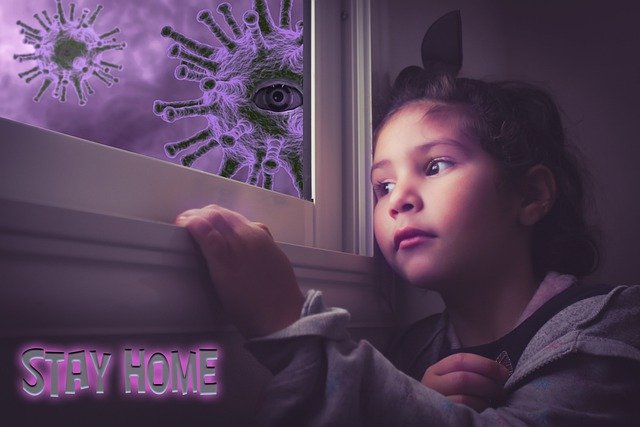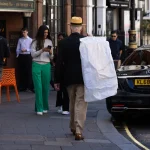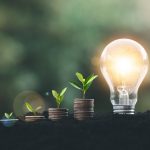The Pandemic: What Permanent changes to our Attitudes and Lives?

To do our part to “flatten the curve,” many of us have made dramatic changes to our everyday lives. While there are lots of unknowns, I wonder whether any of these changes will persist — will we cocoon ourselves within our immediate social circles, for example, or will we break out and party big time on the beach once COVID-19 has run its course? Consider the following:
The ascendancy of online shopping
Many of us have been shopping online for a long while, buying everything from food to fashion. That shift in shopping behaviour was a major blow to the suburban malls and big box stores that displaced mom-and-pop shops on Main Street. Many retail corporations are choosing to close their doors, and some jurisdictions are ordering the closure of any outlet that isn’t selling food and essential home or medical supplies. So nearly everyone who can shop online is doing so. If these brick-and-mortar retailers survive, will they reopen as they were?
The end of cash
I can’t remember the last time I used coins or bills anywhere in the world and I sure can’t use them now. If we can’t use cash in a crisis, do we need cash in normal times? How are people without access to online banking, chequing accounts or other financial services supposed to pay their bills? And get ready for digital cash, brought to you by your favourite central bank. Digital cash is different than a credit or debit card that accesses a big bank’s computer system. It’s actual cash on your phone or other digital wallet that moves directly to a merchant, without taking days to “clear and settle.” It’s faster, cheaper to transact and can be anonymous. Think bitcoin only created by the Bank of Canada, to supercharge the Canadian financial system and economy.
The comeback of global institutions
After the Second World War, nations built global institutions such as the United Nations, the World Bank, the International Monetary Fund, the World Trade Organization and the World Health Organization. Almost instantly they appear relevant again. The WHO continues to aggregate data, co-ordinate research and communicate guidance at all levels — from public policy to personal hygiene. It’s also co-ordinating with the United Nations International Children’s Emergency Fund and the International Federation of the Red Cross to ensure the protection of children during the pandemic. Surely, there will be a growing comprehension that we need global institutions to synchronize mass efforts on such global problems as public health and climate change?
The shift to online services and entertainment
Governments at state and local levels are also forcing the closure of social hotspots — from bars, restaurants and coffee shops to theatres, music venues and sports arenas. People have taken to gathering online, simultaneously streaming movies and chatting via mobile apps and over social media. If these physical social spaces survive will they reopen as they were? As for vacations, are you planning a cruise?
The triumph of online education
In 1976, I took an online graduate course in statistics. We all worked at computer terminals connected to a large minicomputer in the university’s data centre. I loved it: it was personalized, there were no lectures and I worked at my own pace. To my surprise, I got an A. I had the big idea that, for subject areas requiring mastery — where there was a right and a wrong answer — online learning would dominate the education sector by 1990. But before this pandemic, we still had statistics professors standing in auditoriums of 500 students and delivering lectures. Now schools and universities are requiring teachers to flip their classrooms overnight from old models of learning to new ones. Nothing is so powerful as an idea that has become an imperative. Will these academic institutions return to what they were doing in physical classrooms or should they remain online?
A society of clean freaks
Personal hygiene and sanitation is top of mind and that should last. We’ve all become hyperaware of germs, airborne or otherwise. Those of us who played fast and loose with bars of soap have become handwashing fanatics. Forget about kissing the cheeks of friends or shaking the hands of colleagues as greetings; a demonstrative nod of the head or a crisp bow from the waist will do! So, at that first post-coronavirus conference, will you resume physical contact with strangers if you never contracted the disease? Many events will take place online and nearly all will by hybrid — part online and part one or more locations.
The destigmatization of government
So much for the Ronald Reagan/Margaret Thatcher theory that “government is not the solution to our problem; government is the problem.” Libertarianism as an ideology is in deep trouble. In the United States people are looking to the Centers for Disease Control for up-to-date and accurate information and guidance; to the Food and Drug Administration for a vaccine; to the Army Corps of Engineers to set up much-needed hospital facilities; to Congress for financial relief; and to the Federal Reserve to lessen the inevitable recession. This, of course, does not mean that citizens trust their elected leaders any more than before the outbreak. Trust in politicians, at an all-time low, will not rise, especially in countries where their leaders were inept. Our elected governments have to make much bigger changes to restore legitimacy.
Getting serious about a universal basic income
Before American Democratic Party candidate Andrew Yang popularized the idea in the United States, numerous people (including me) had been advocating for a universal basic income. Drivers (the number one job type in Canada) will be replaced shortly with autonomous vehicles. And now with the pandemic, employment in many industries will never return to old levels. Look at the old resources industries: a $5 bottle of water is about the same price as a barrel or Western Canadian Select oil, and it’s likely many oil consumers, like the auto industry, will accelerate the shift to electric.
So we can’t really thrive in a world where huge segments of the population are failing. Others advocate bailing out banks and big businesses under the trickle-down theory of economics. Now government officials across the board see the political expedience, if not the wisdom, of providing monthly payments to households. If such measures pass, will they continue in perpetuity? Should they?
The virtual workplace
Working from home really works for those of us in white-collar jobs with privacy, high-speed connectivity and space for all the necessary equipment. It saves a lot of commuting time and may reduce our carbon footprint. There should be a permanent change in the way business is conducted not only for those who commute by car, but air travel, too. It will take years for business travellers to recover from the PTSD of COVID-19 and with the rise of online meetings, conferences and collaboration, business air travel will never return to the 2019 peaks. The fossil fuel economy is also in deep trouble. This is good for our planet but will cause a lot of short-term job loss.
Acting global
The pandemic has taught us that we’re all connected and deeply interdependent. Someone gets a new virus in Asia and three months later the global economy shuts down. Or if one person does not act in a socially responsibly way during a pandemic they can affect the future of the world. Our local actions can have global consequences. Today in this smaller world, when we act, we “act global.” We’re all facing the biggest crisis since the Second World War and we need global solutions to these global problems. Is a deeper understanding of the danger of climate change next? Sure, jingoists will try to use this crisis to foment national fervour and scapegoat other nations, but the stronger trend will be deep comprehension that we live on this planet together.
The economic costs of COVID-19 are devastating, on a scale perhaps never seen in modern history. The human costs are, at this stage, unfathomable.
This is one of those rare turning points in history. The COVID-19 pandemic will cause profound changes to our economy, our behaviour and society. Some leaders and governments that failed the challenge will be replaced. Many institutions will be scrutinized and hopefully changed for the better.
When this all ends — and it will, eventually, the way we perform our jobs, entertain ourselves and go about our daily lives could see a dramatic change for the better. We could become better global citizens, more interested in the news and political choices, more self involved, more family oriented, more connected and more appreciative of life.
This article was originally published in the Toronto Star.





